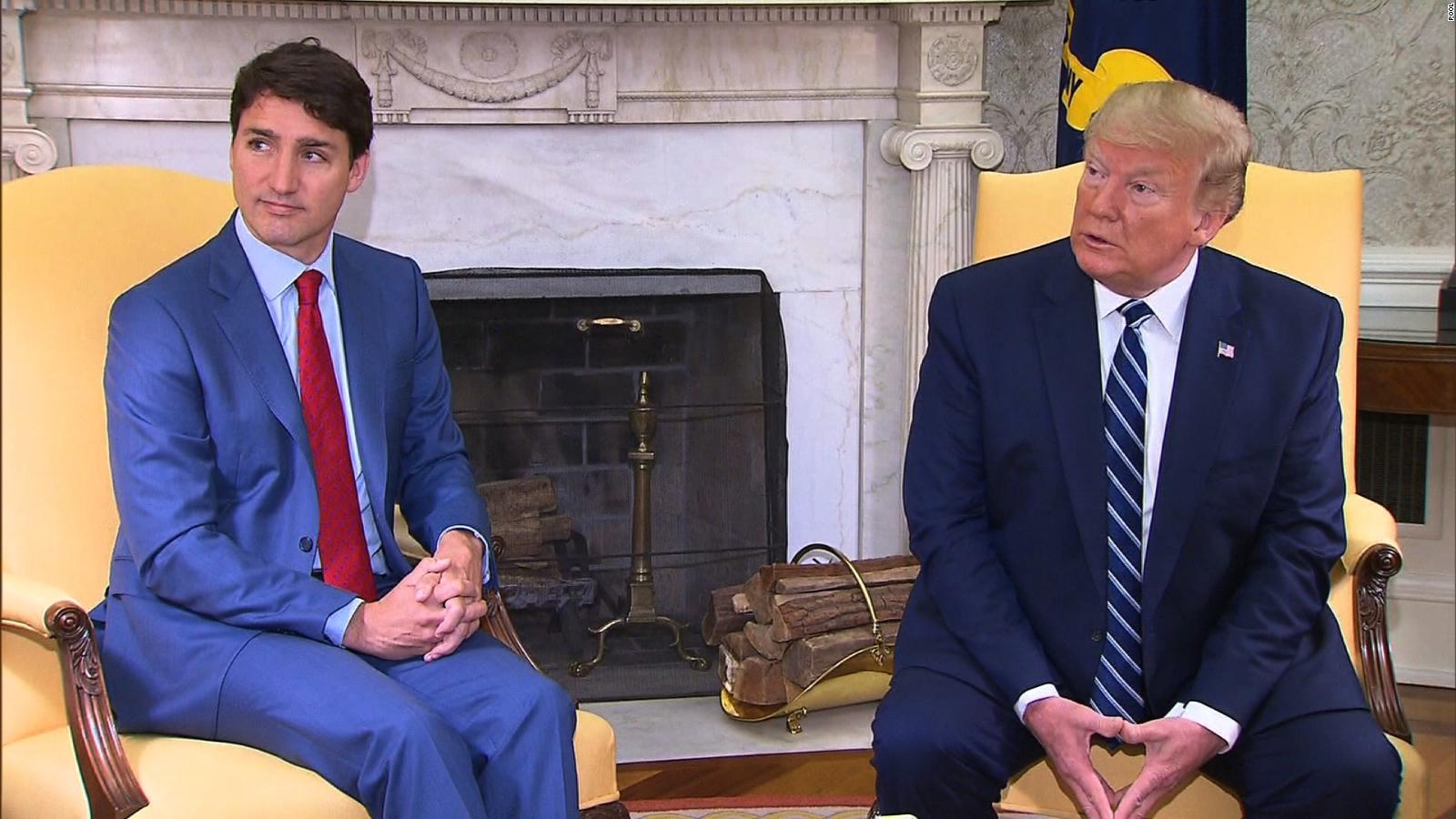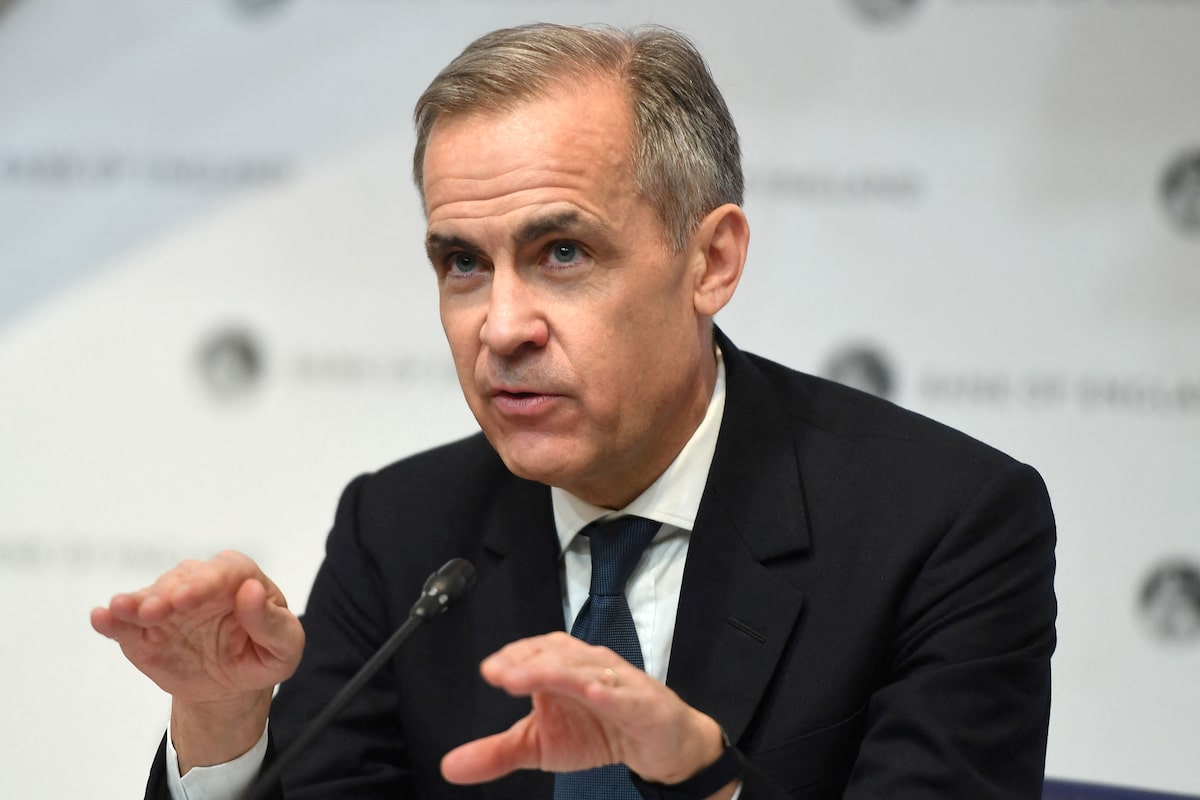Trump's "51st State" Comments: Is He Trolling Canada?

Table of Contents
Analyzing Trump's Past Statements on Canada-US Relations
Historical Context: A Pattern of Provocative Rhetoric?
Throughout his presidency, Trump frequently made controversial statements regarding Canada. His tweets, speeches, and interviews often contained jabs about Canadian trade practices and policies. For example, his repeated criticism of NAFTA, later renegotiated as USMCA, painted Canada as a trade adversary, rather than a close ally. These comments, often delivered with a blunt and confrontational style, sharply contrasted with the generally more diplomatic language used by previous administrations. Keywords like "Trump Canada trade," "Trump Canada relations," and "US Canada relations" frequently appeared in headlines and analyses of his pronouncements. The tone was often more confrontational than previous administrations, leading to increased scrutiny of his foreign policy approach towards Canada.
Economic Factors: Trade Tensions and the USMCA
Significant economic tensions existed between the US and Canada during the Trump administration, primarily revolving around NAFTA negotiations. Trump frequently threatened to withdraw from the agreement, leveraging the negotiations to extract concessions. The eventual replacement, the USMCA, while maintaining the framework, involved significant renegotiations, fueled by Trump's accusations of unfair trade practices by Canada. Keywords such as "USMCA," "NAFTA," "trade war," and "Canada-US trade" became central to the discourse surrounding the economic relationship between the two nations. The uncertainty created by these negotiations impacted various sectors of both economies.
Political Motivations: Domestic and International Strategy
Trump's statements regarding Canada could also be analyzed through a lens of domestic political strategy. By portraying Canada as a trade adversary, he could rally support among certain segments of the US population who felt disadvantaged by international trade agreements. This strategy, however, potentially alienated Canadian voters and risked jeopardizing the historically strong relationship between the two countries. Keywords like "Trump political strategy," "US election," and "Canadian politics" become critical in understanding this aspect of his rhetoric. Was it a deliberate attempt to appeal to a specific base or merely an impulsive outburst? This question remains open for debate.
Public and Political Reactions to the "51st State" Comments
Canadian Response: Outrage and Disbelief
The Canadian response to Trump's "51st State" comment ranged from outright disbelief to expressions of concern and offense. Canadian officials, from Prime Minister Justin Trudeau downwards, largely refrained from direct confrontation, preferring diplomatic channels to address the issue. However, news articles and public commentary expressed strong disapproval of the suggestion, highlighting the absurdity and insult embedded in such a statement. Keywords such as "Canadian response Trump," "Canada Trump reaction," and "Canadian public opinion" frequently emerged in news reports covering the incident.
US Response: A Divided Nation
The US response was similarly varied. Some commentators lauded Trump's assertiveness, suggesting a need for stronger US leadership in North America. Others condemned the comment as inappropriate and disrespectful, emphasizing the importance of the Canada-US relationship. Public opinion was sharply divided, mirroring the existing political polarization within the United States. Keywords like "US response Trump," "American opinion Trump," and "US political commentary" accurately reflect the diversity of responses in the US media and public discourse.
International Perspective: Global Implications of the Remarks
Trump's comments also garnered international attention, with many countries observing the exchange with a mix of amusement and concern. The incident highlighted the unpredictable nature of Trump's foreign policy and raised questions about the future of US relations not only with Canada but also with other international partners. Keywords such as "International relations," "Global politics," and "Trump foreign policy" are relevant in understanding the broader context of the incident and its implications for global diplomacy.
Interpreting Trump's Intent: Serious Proposal or Political Trolling?
Arguments for a Serious Proposal: Consolidation of Resources?
Some might argue that Trump's words, however outlandish, contained a kernel of strategic thinking. A unified North American economy, incorporating Canada, could theoretically offer significant economic advantages to the US. However, the logistical and political hurdles involved in such a proposition are immense, making it highly improbable. This section requires acknowledgement of the numerous counterarguments against the plausibility of such a serious proposal.
Arguments for Political Trolling: Provocative Rhetoric for Domestic Gain?
The more compelling explanation lies in the realm of political trolling. Trump's communication style, characterized by provocative statements and disregard for diplomatic norms, strongly suggests that his "51st State" comment was a deliberate attempt to provoke a reaction, generate media attention, and consolidate his support base. The lack of subsequent action further supports this interpretation.
The Power of Perception: Irreparable Damage to the Relationship?
Regardless of Trump's actual intent, the impact of his statement cannot be ignored. The ambiguity surrounding his intentions created uncertainty and damaged the perception of US-Canada relations in both countries and internationally. Such provocative rhetoric has far-reaching implications for diplomacy and international trust.
Conclusion: Unpacking the Implications of Trump's "51st State" Suggestion
The ambiguity surrounding Trump's "51st State" comments remains. While the possibility of a serious proposal exists, the evidence points more strongly toward a calculated act of political trolling designed to generate attention and consolidate support. The long-term implications for US-Canada relations remain uncertain, but the incident underscores the importance of carefully considered rhetoric in international diplomacy. We encourage you to share your opinions and further analyze "Trump's 51st State" comments by leaving a comment below or sharing this article. Let's continue the discussion on the implications of Trump's comments on making Canada the 51st state and analyzing Trump's "51st state" proposal.

Featured Posts
-
 President Trumps Speech To Congress Key Takeaways And Analysis
Apr 30, 2025
President Trumps Speech To Congress Key Takeaways And Analysis
Apr 30, 2025 -
 Canadian Federal Election Mark Carneys Liberals Secure Victory
Apr 30, 2025
Canadian Federal Election Mark Carneys Liberals Secure Victory
Apr 30, 2025 -
 Processo Becciu Appello A Partire Dal 22 Settembre
Apr 30, 2025
Processo Becciu Appello A Partire Dal 22 Settembre
Apr 30, 2025 -
 Dagskrain Meistaradeildin Og Nba Stjoernur I Bonusdeildinni
Apr 30, 2025
Dagskrain Meistaradeildin Og Nba Stjoernur I Bonusdeildinni
Apr 30, 2025 -
 Cavs 10th Straight Win Hunters 32 Points Power Ot Victory Over Blazers
Apr 30, 2025
Cavs 10th Straight Win Hunters 32 Points Power Ot Victory Over Blazers
Apr 30, 2025
